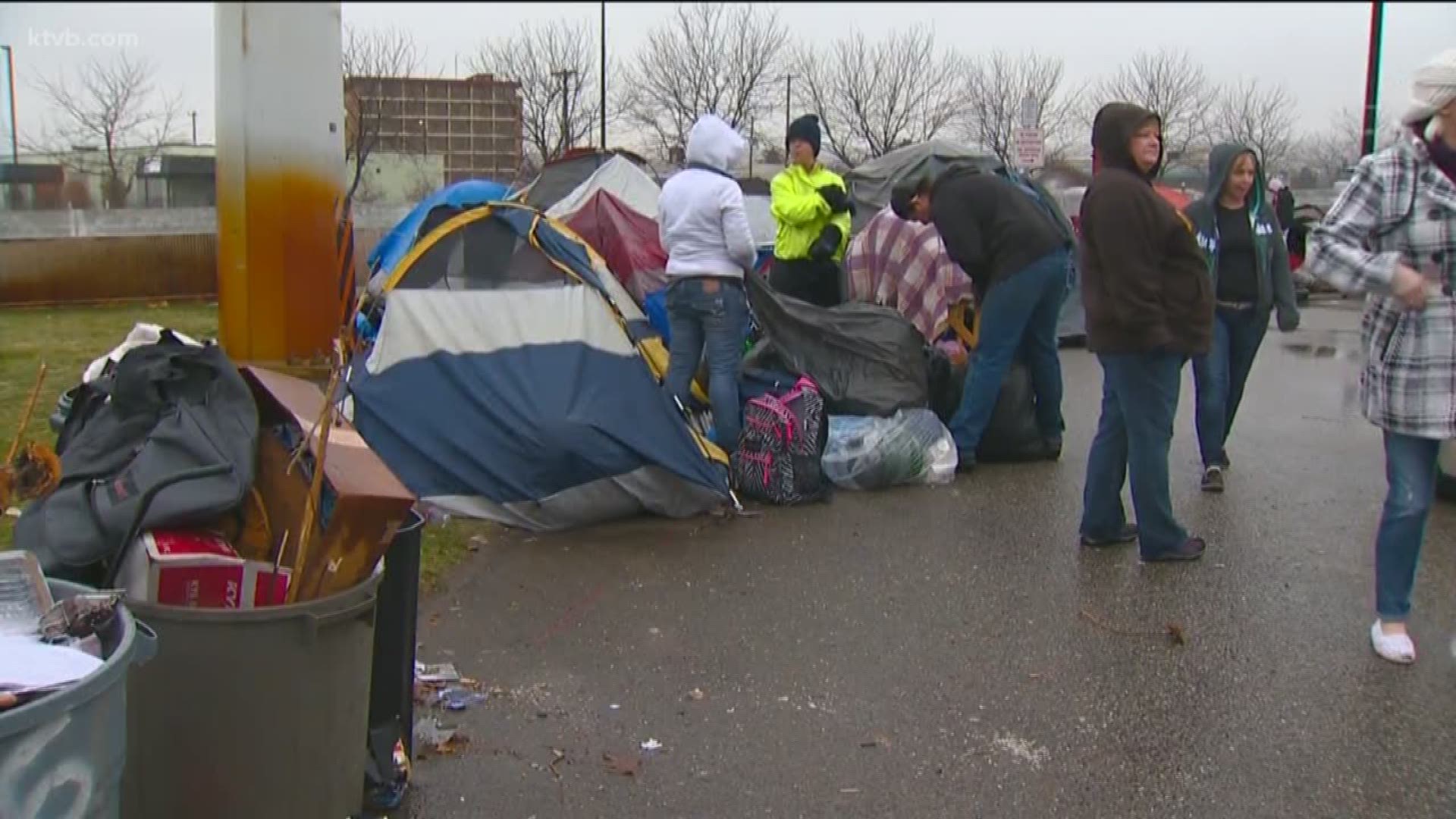BOISE, Idaho — The City of Boise's lawsuit over its homeless camping ordinance may be headed to the highest court in the country, 10 years after it was originally filed.
On Monday, the city announced it plans to file an appeal for the U.S Supreme Court to hear its case.
Martin v. Boise was filed in 2009 after six people experiencing homelessness sued the city, challenging the constitutionality of the city's anti-camping ordinance, which prohibits anyone from sleeping on public property.
According to Boise city spokesman Mike Journee, the ordinance is necessary for the city to prevent a public health and safety crisis.
"When encampments like this happen, the most vulnerable members of our society are often preyed upon by those who want to get drugs in their hands, create scenarios where people get hurt," he said. "Sexual assaults of women are very high in situations like this and other things. So it's a public health and safety problem, it's a humanitarian problem. It's an issue we cannot allow to exist on our streets."
But those who filed the lawsuit argue it violates the 8th Amendment, which prohibits cruel and unusual punishment.
The 9th Circuit Court of Appeals heard the case in September 2018 and ruled the ordinance is a violation of the 8th Amendment.
The opinion from the judges reads in part, "We consider whether the Eighth Amendment’s prohibition on cruel and unusual punishment bars a city from prosecuting people criminally for sleeping outside on public property when those people have no home or other shelter to go to. We conclude that it does."
Journee said the city argues "it’s not a humane thing to allow conditions like that to occur and to grow.”
According to Journee, the city does not often issue citations for camping but the city needs to have the ability to do so when necessary.
"This tool is used very sparingly in our community," he said. "This year, we have not issued a single camping ticket. Last year there were about 30 that were issued. The year before that, six.
"This is part of a larger effort where we're building up those resources in order to provide services that those experiencing homelessness need in our community," Journee continued. "But in order to make sure they avail themselves of those services, and they take advantage of the resources available to them, we need this tool."
The city did amend its ordinance in 2014 to not allow citations when local homeless shelters were full. But that didn't prevent the case from moving forward in court.
David Leroy, a Boise attorney and former Idaho Attorney General, said he sees a strong case on both sides of the issue.
“The City of Boise I think is pursuing this with the best of motives, and righteously so, in its interest and in the interest of every other city around the country," Leroy said. "By the same token, the rights of the homeless must be respected too. It’s an entirely proper case to go to the Supreme Court.”
With cities across the country now facing a growing homelessness crisis, many eyes around the nation will likely be following the developments of the case should the Supreme Court decide to hear it.
“This is a very significant case not only for Boise, not only for homeless people all over the country, but for every state and every city because it interprets the ability of a local municipality to use minor criminal processes to discourage homelessness in parks and other public places,” Leroy said.
If the justices in Washington, D.C. do take the case, LeRoy said to expect the unexpected.
“I’ve appeared three times before the U.S. Supreme Court. These kinds of cases always take a twist, or a bounce that some party had not anticipated," he said. "The questions by the justices go in a different direction, the opinion contemplates something that nobody ever truly argued or thought through fully. So it’s entirely possible an entirely new idea can be fashioned by the Supreme Court as to the issue of homelessness and criminal citations.”
The City of Boise disagreed with the 9th Circuit Court of Appeal's 2018 ruling and asked for a rehearing on the case. In April 2019, the Court denied it, prompting the city to go to the next level.
Journee said the city on Monday asked for an extension to the 60-day deadline to start the formal appeal process for the U.S. Supreme Court. If approved, the deadline for the city to file the appeal would be Aug. 29. After that, it would be up to the Court on if, and when, it decides to hear the case. Journee said the city could hear back sometime in the fall.

